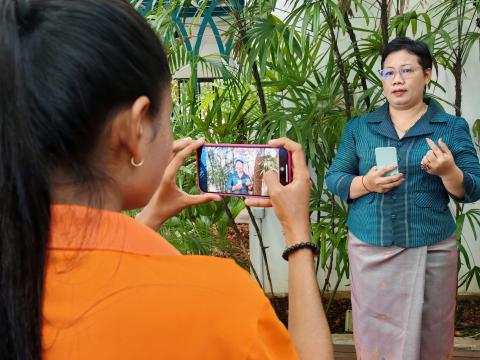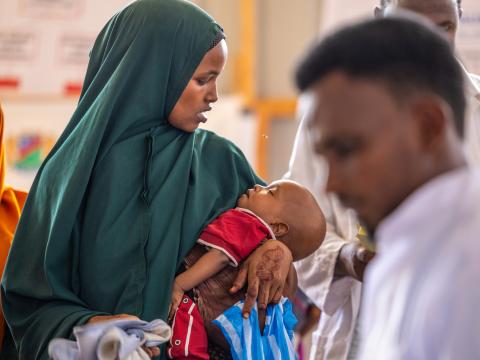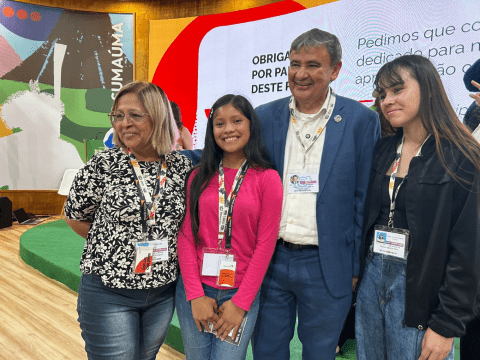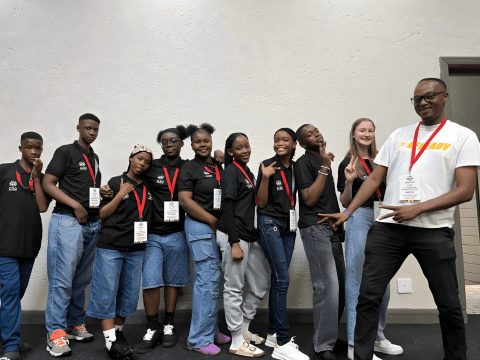
Inside the fierce push to put Child Rights at the heart Of the G20 Johannesburg Summit
Samuel Norgah, Director of World Vision AULO, brings urgent insight into why children’s voices must shape the G20 agenda.
21 November 2025.
Over two intense days, children from across Africa and beyond confronted global leaders with a compelling declaration grounded in lived reality, emotional candour, and unwavering conviction. Their message was simple but searing: they are more than observers of global change; they are its frontline witnesses. And arguably, its most overlooked experts. This is why the G20 cannot afford to ignore them, especially now.
What unfolded in Johannesburg is not merely another engagement exercise. It signals an emerging shift in global governance, one that challenges policymakers to treat children’s perspectives as essential evidence, not sentimental add-ons. To a certain extent, this challenges comfortable assumptions about how global priorities are set and whose experiences count.
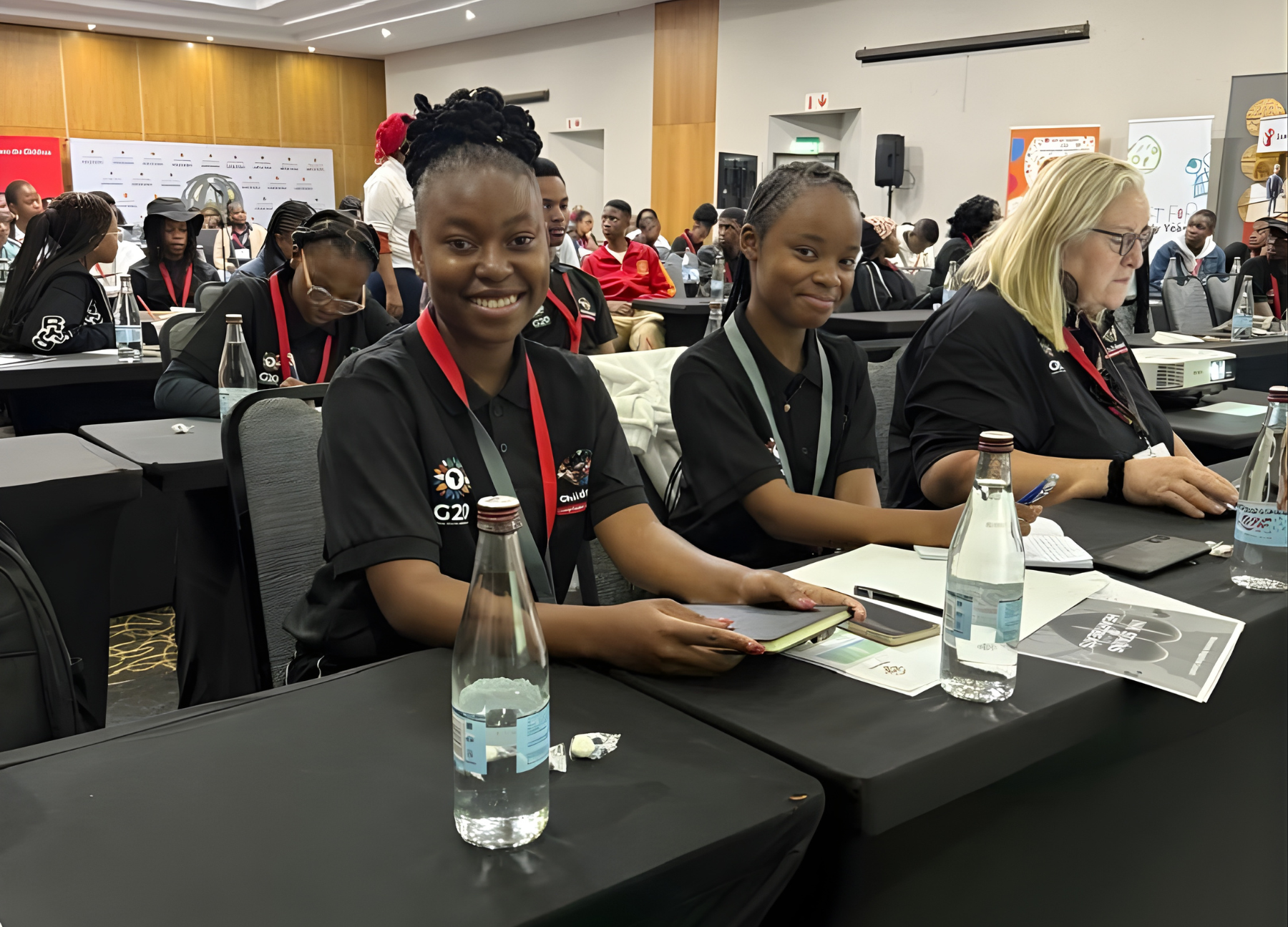
Children at the Table as Stakeholders
While persuasive, the long-held view that global summits are the domain of adults overlooks a glaring reality: Children represent over one-third of the world’s population, currently estimated at approximately 2.3 billion, Rarely has such an idea been so eloquently flawed. Their futures hinge on decisions negotiated in these rooms, yet historically they have been excluded from them. The Government of South Africa’s endorsement of CH20 as a formal G20 engagement group fundamentally shifts that dynamic. It legitimises children’s political agency and acknowledges that their insights and experiences are indispensable to sustainable policymaking and agenda setting for issues that concern them.
World Vision, drawing on deep engagement with vulnerable communities, contributed evidence, reflections, and programmatic insights across two thematic areas poverty and hunger, and digital online safety. Although it could be said that this aligns neatly with institutional mandates, the reality is more human. Behind each policy recommendation are stories of children navigating hunger, violence, and unsafe digital spaces with resilience that should trouble any complacent observer.
Inside the CH20: Where Experience Meets Expectation
Children gathered in Johannesburg not to repeat predetermined talking points, but to scrutinise the 2024 Brazil CH20 Declaration and rebuild it through the lens of what survival looks like today in African communities. Their priorities felt painfully clear: mental health, poverty and hunger, online safety, and child sexual gender-based violence.
One might contend that these issues are familiar, but the emotional texture the children brought shifted the terrain. A teenage girl from rural South Africa described “the weight of danger online feeling heavier than my schoolbag.” A boy from Zimbabwe noted that hunger “steals your decisions before it steals your strength.” These are not abstract indicators. They are lived experiences demanding political courage and a mindset shift in relation to the way policymakers have positioned children’s issues in various national discourses.
Children drafted a new declaration shaped by six core themes: digital sovereignty, climate resilience, mental health as a right, education and skills, water and sanitation, and disability inclusion. Each theme carries evidence from community-level programming, household realities, and children’s testimonies a reminder that policy divorced from lived truth risks becoming meaningless.
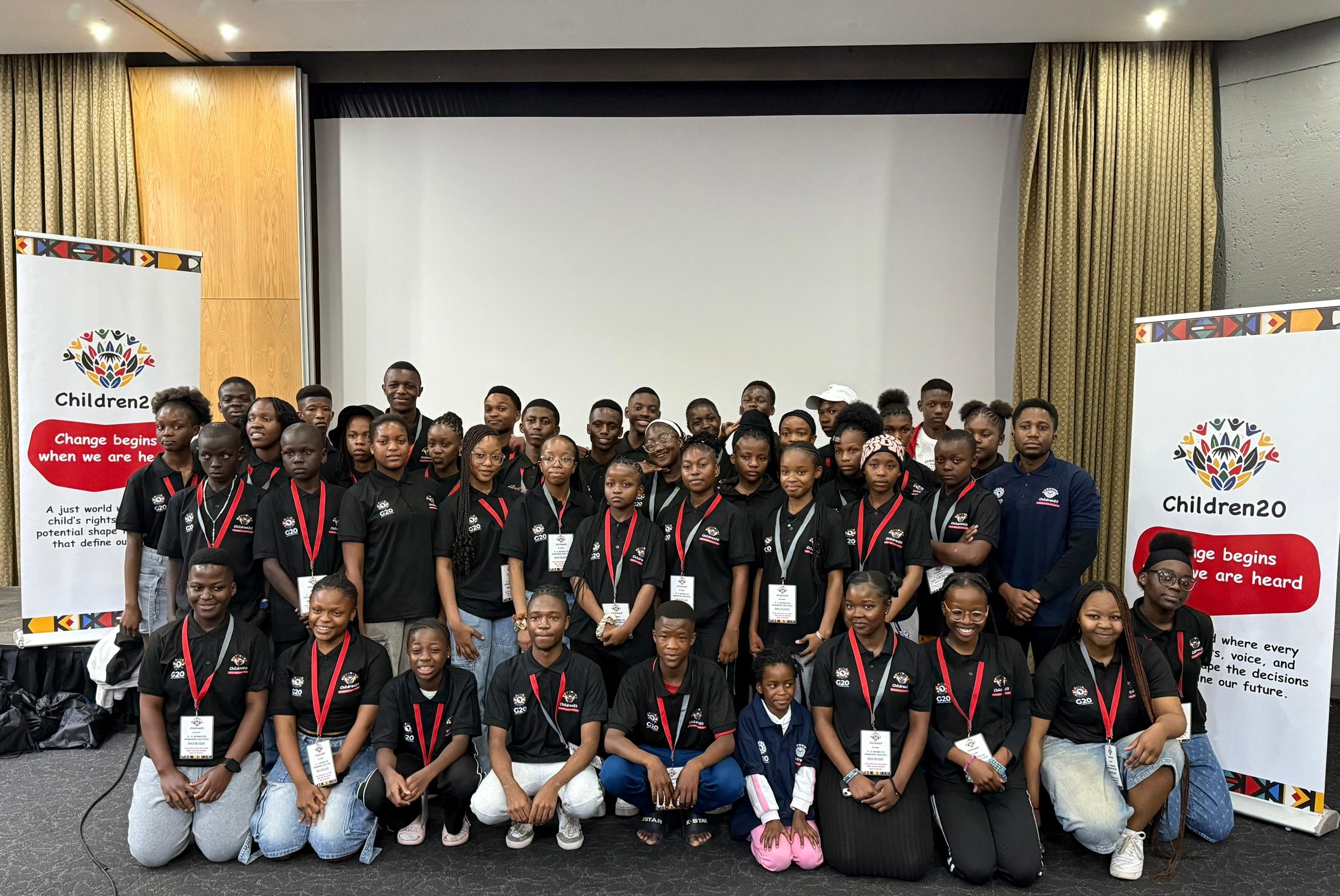
Partners Align, But Children Lead
In reconsidering this perspective, one might note that while organisations such as the CSO Forum, World Vision, Save the Children, Plan International, Oxfam, Brave Movement, The Nelson Mandela Foundation, UNICEF, UNHCR and other partners played critical roles, the narrative arc belonged to the children. Day Two culminated in two statements, one from partners analysing national progress, another crafted by the children themselves. The latter will be delivered directly to G20 leaders by the President of the Nelson Mandela Children’s Parliament. Quietly powerful, this symbolism challenges the G20 to move beyond performative listening.
Why This Matters to Leaders and Stakeholders
To a stakeholder weighing competing crises, child participation might appear secondary. Yet central to this assumption is a flaw demanding scrutiny. Evidence consistently shows that policies shaped with children’s input are more attuned to risk, more grounded in community realities, and more likely to protect long-term wellbeing. Moreover, children’s priorities intersect with global economic stability, from digital governance to climate resilience.
For the African Union and governments represented at Johannesburg, this summit offered a strategic opportunity: a direct line to the demographic shaping the continent’s social and economic future. Their voices are not decorative. They are diagnostic.
A Call to Act Not to Observe
If global leaders want a future that is economically stable, socially cohesive, and morally defensible, they must position children as co-architects of the solutions. Not tomorrow. Now.
The CH20 declaration is heading to the G20 this week. It deserves not only attention but action. Governments, multilateral agencies, private sector partners, and philanthropic investors must invest in the priorities children articulated with such clarity and courage.
The children have their message, the question is whether we will rise to meet it or come back next year at the next G20 with unfulfilled promises
Samuel Norgah is the Director of the World Vision African Union Liaison Office, where he has been instrumental in advocating for children's rights and addressing issues of poverty, inequality, and gender-based violence. With a background in development studies and experience in various capacities with government and the private sector, Norgah has successfully supported the development of over 30 Country Strategies and Evaluations across Plan and other organizations.
